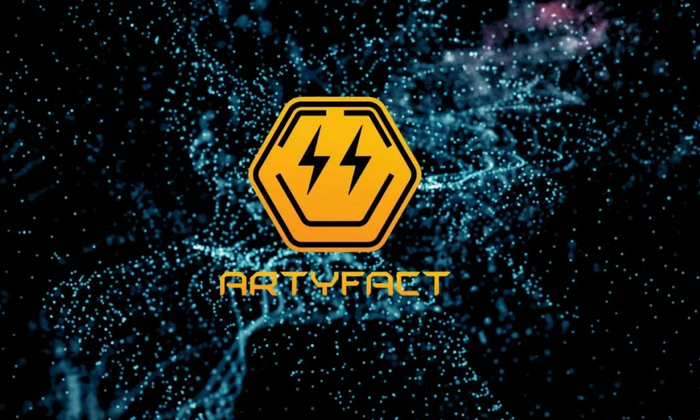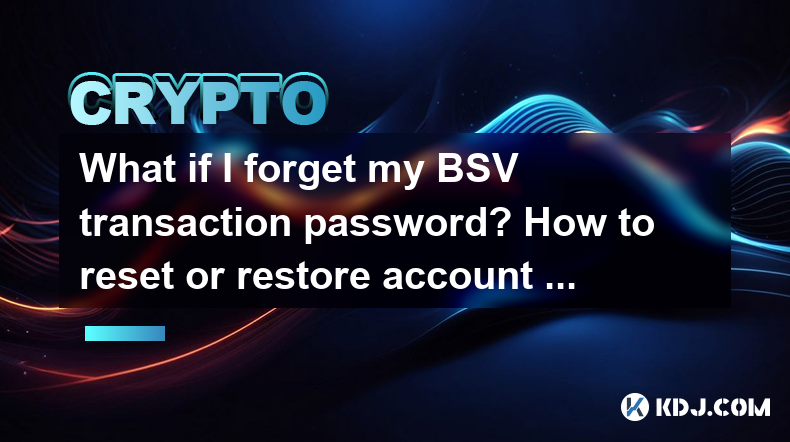-
 Bitcoin
Bitcoin $96,101.9561
-0.82% -
 Ethereum
Ethereum $1,825.8821
-0.09% -
 Tether USDt
Tether USDt $1.0004
0.01% -
 XRP
XRP $2.1966
-0.84% -
 BNB
BNB $596.4096
-0.45% -
 Solana
Solana $147.3281
-1.90% -
 USDC
USDC $1.0000
0.02% -
 Dogecoin
Dogecoin $0.1787
-1.07% -
 Cardano
Cardano $0.7012
-0.79% -
 TRON
TRON $0.2477
1.08% -
 Sui
Sui $3.3823
-2.39% -
 Chainlink
Chainlink $14.3607
-2.08% -
 Avalanche
Avalanche $20.8171
-2.78% -
 Stellar
Stellar $0.2698
-2.14% -
 UNUS SED LEO
UNUS SED LEO $8.9380
-0.10% -
 Toncoin
Toncoin $3.1650
-0.67% -
 Shiba Inu
Shiba Inu $0.0...01317
-2.10% -
 Hedera
Hedera $0.1825
-2.38% -
 Bitcoin Cash
Bitcoin Cash $368.3555
-0.24% -
 Hyperliquid
Hyperliquid $20.4276
0.05% -
 Litecoin
Litecoin $87.0004
-1.99% -
 Polkadot
Polkadot $4.1007
-1.96% -
 Dai
Dai $1.0000
0.00% -
 Bitget Token
Bitget Token $4.3836
-0.25% -
 Monero
Monero $274.2096
-1.43% -
 Ethena USDe
Ethena USDe $1.0007
-0.01% -
 Pi
Pi $0.5829
-2.18% -
 Pepe
Pepe $0.0...08373
-3.90% -
 Aptos
Aptos $5.2953
-3.27% -
 Uniswap
Uniswap $5.1577
-1.94%
How to buy and sell Artyfact (ARTY) coins
To purchase ARTY coins, users first create a wallet that supports ERC-20 tokens, fund it with Ethereum for transaction fees, and connect it to a decentralized exchange offering ARTY trading.
Dec 05, 2024 at 02:46 pm

How to Buy ARTY Coins
ARTY is the native token of the Artyfact platform, a blockchain-based marketplace for digital collectibles. ARTY can be used to purchase collectibles, pay for transaction fees, and participate in governance votes on the platform.
1. Create a Wallet
To buy ARTY coins, you will need a cryptocurrency wallet that supports ERC-20 tokens. Some popular options include MetaMask, Trust Wallet, and Coinbase Wallet.
2. Fund Your Wallet
Once you have created a wallet, you will need to fund it with some ETH. ETH is the cryptocurrency used to pay for transaction fees on the Ethereum network. You can purchase ETH on a cryptocurrency exchange such as Coinbase or Binance.
3. Connect Your Wallet to a DEX
Once you have funded your wallet with ETH, you can connect it to a decentralized exchange (DEX) that supports ARTY trading. Some popular DEXs include Uniswap, SushiSwap, and PancakeSwap.
4. Buy ARTY Coins
Once you have connected your wallet to a DEX, you can place an order to buy ARTY coins. You will need to specify the amount of ARTY you want to buy and the price you are willing to pay.
5. Store Your ARTY Coins
Once you have purchased ARTY coins, you can store them in your cryptocurrency wallet. You should make sure to store your coins in a secure location.
How to Sell ARTY Coins
1. Connect Your Wallet to a DEX
To sell ARTY coins, you will need to connect your wallet to a DEX that supports ARTY trading. Some popular DEXs include Uniswap, SushiSwap, and PancakeSwap.
2. Place an Order to Sell ARTY Coins
Once you have connected your wallet to a DEX, you can place an order to sell your ARTY coins. You will need to specify the amount of ARTY you want to sell and the price you are willing to accept.
3. Wait for Your Order to Be Filled
Once you have placed an order to sell your ARTY coins, you will need to wait for your order to be filled. This may take some time depending on the market conditions.
4. Withdraw Your ETH
Once your order has been filled, you can withdraw your ETH to your bank account or another cryptocurrency wallet.
Disclaimer:info@kdj.com
The information provided is not trading advice. kdj.com does not assume any responsibility for any investments made based on the information provided in this article. Cryptocurrencies are highly volatile and it is highly recommended that you invest with caution after thorough research!
If you believe that the content used on this website infringes your copyright, please contact us immediately (info@kdj.com) and we will delete it promptly.
- Arctic Pablo Coin (APC) Captures Serious Attention with Its Location-Based Presale Strategy
- 2025-05-03 19:00:26
- The 3 Most Valuable Rare Coins in the World
- 2025-05-03 19:00:26
- Arizona Governor Katie Hobbs Vetoes Bill That Would Have Allowed the State to Hold Bitcoin as Part of Its Official Reserves
- 2025-05-03 18:55:12
- Bitcoin (BTC) Continues to Dominate the Cryptocurrency Market as Altcoins Trail Behind
- 2025-05-03 18:55:12
- Bitcoin (BTC) Mining Enters a New Era in the US as Policymakers Consider Strategic Reserves
- 2025-05-03 18:50:12
- Bitcoin (BTC) Could Reach $135,000 in 100 Days, According to Crypto Analyst Timothy Peterson.
- 2025-05-03 18:50:12
Related knowledge

BSV transaction fees suddenly increased? How to adjust the handling fee to save costs?
May 02,2025 at 06:42am
Understanding BSV Transaction FeesBSV (Bitcoin SV) aims to fulfill the original vision of Bitcoin as a peer-to-peer electronic cash system. One of the key elements in this system is the transaction fee, which compensates miners for including transactions in the blockchain. Recently, users have noticed a sudden increase in BSV transaction fees, which can...

Does BSV transaction require real-name authentication? Is anonymous trading feasible?
May 03,2025 at 03:14pm
The question of whether BSV (Bitcoin SV) transactions require real-name authentication and whether anonymous trading is feasible is a complex one, deeply intertwined with the broader dynamics of cryptocurrency regulations and blockchain technology. Let's delve into these aspects to provide a comprehensive understanding. Understanding BSV and Its Transac...

How to solve the high slippage of BSV transactions? How to choose between limit and market orders?
May 02,2025 at 09:01pm
High slippage can be a significant concern for traders dealing with Bitcoin SV (BSV) transactions. Slippage refers to the difference between the expected price of a trade and the price at which the trade is actually executed. This can occur in fast-moving markets or when there is low liquidity. To address this issue, understanding the mechanics of slipp...

What if BSV node synchronization is slow? How to optimize local wallet performance?
May 03,2025 at 04:35pm
When dealing with BSV (Bitcoin SV) node synchronization and optimizing local wallet performance, it's crucial to understand the underlying issues and implement effective solutions. Slow synchronization and poor wallet performance can significantly hinder your experience with the BSV network. This article will delve into the reasons behind slow BSV node ...

How to check BSV transaction records? How to use the blockchain browser?
May 03,2025 at 06:50am
Checking BSV (Bitcoin SV) transaction records and using a blockchain browser are essential skills for anyone involved in the cryptocurrency space. These tools allow you to verify transactions, check wallet balances, and understand the flow of funds on the blockchain. This article will guide you through the process of checking BSV transaction records and...

What if I forget my BSV transaction password? How to reset or restore account permissions?
May 02,2025 at 02:49pm
Forgetting your BSV (Bitcoin SV) transaction password can be a stressful experience, but there are steps you can take to reset or restore your account permissions. This article will guide you through the process, ensuring you understand each step and potential solutions available to you. Understanding BSV Transaction PasswordsBSV transaction passwords a...

BSV transaction fees suddenly increased? How to adjust the handling fee to save costs?
May 02,2025 at 06:42am
Understanding BSV Transaction FeesBSV (Bitcoin SV) aims to fulfill the original vision of Bitcoin as a peer-to-peer electronic cash system. One of the key elements in this system is the transaction fee, which compensates miners for including transactions in the blockchain. Recently, users have noticed a sudden increase in BSV transaction fees, which can...

Does BSV transaction require real-name authentication? Is anonymous trading feasible?
May 03,2025 at 03:14pm
The question of whether BSV (Bitcoin SV) transactions require real-name authentication and whether anonymous trading is feasible is a complex one, deeply intertwined with the broader dynamics of cryptocurrency regulations and blockchain technology. Let's delve into these aspects to provide a comprehensive understanding. Understanding BSV and Its Transac...

How to solve the high slippage of BSV transactions? How to choose between limit and market orders?
May 02,2025 at 09:01pm
High slippage can be a significant concern for traders dealing with Bitcoin SV (BSV) transactions. Slippage refers to the difference between the expected price of a trade and the price at which the trade is actually executed. This can occur in fast-moving markets or when there is low liquidity. To address this issue, understanding the mechanics of slipp...

What if BSV node synchronization is slow? How to optimize local wallet performance?
May 03,2025 at 04:35pm
When dealing with BSV (Bitcoin SV) node synchronization and optimizing local wallet performance, it's crucial to understand the underlying issues and implement effective solutions. Slow synchronization and poor wallet performance can significantly hinder your experience with the BSV network. This article will delve into the reasons behind slow BSV node ...

How to check BSV transaction records? How to use the blockchain browser?
May 03,2025 at 06:50am
Checking BSV (Bitcoin SV) transaction records and using a blockchain browser are essential skills for anyone involved in the cryptocurrency space. These tools allow you to verify transactions, check wallet balances, and understand the flow of funds on the blockchain. This article will guide you through the process of checking BSV transaction records and...

What if I forget my BSV transaction password? How to reset or restore account permissions?
May 02,2025 at 02:49pm
Forgetting your BSV (Bitcoin SV) transaction password can be a stressful experience, but there are steps you can take to reset or restore your account permissions. This article will guide you through the process, ensuring you understand each step and potential solutions available to you. Understanding BSV Transaction PasswordsBSV transaction passwords a...
See all articles




















































































